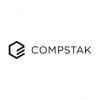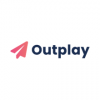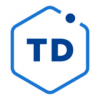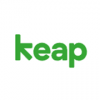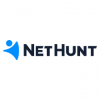
The content moderation technology startup Kinzen, which has been collaborating with Spotify since 2020 and is based in Dublin, Ireland, was acquired by the streaming service. Details of the deal weren't made public. According to the company, Kinzen's technology will be used by Spotify to improve the podcast and other audio moderation, utilising a combination of machine learning and human expertise, including input from local academics and journalists.
According to its website, Kinzen was established in 2017 by Line Kerr, Mark Little, and Paul Watson. Its goal is to shield public discourse from "hazardous misinformation and harmful content."
Due to the controversy surrounding Joe Rogan, the business's most popular podcaster, who disseminated false information about the COVID-19 vaccination on his programme, causing a public reaction and a PR nightmare for Spotify, the corporation has firsthand experience in this area. At one time, 270 medical professionals and researchers demanded that Spotify develop disinformation rules to deal with the issue in an open letter. Popular musicians, including Neil Young and Joni Mitchell, withdrew their songs from the service in protest while the hashtag #DeleteSpotify was trending.
Early in 2022, Spotify changed its policy on COVID-19 and false information; however, critics and industry professionals claimed that these revisions were insufficient to have a significant impact. By establishing a "Safety Advisory Council," whose role is to support Spotify's future content moderation choices, in June, Spotify took another step toward better controlling the content posted to its platform.
According to the announcement of Kinzen, even this step was insufficient, and Spotify needed to hire content moderation experts inside.
In brief, Kinzen's solutions use a combination of technology and human experience at scale to assist platforms in responding more quickly to content moderation issues in real time.
The toolkit from Kinzen includes the ones that assist platforms in making plans by providing early warnings about developing narratives and trends that may later pose a risk of disinformation. This investigation covers a wide range of topics, such as false information about health, antisemitism, hate speech, the climate, violent extremism, and other false information spread across numerous markets and languages. It offers its clients actionable policy violation insights that cover audio, video and text-based content. This cross-platform support is especially crucial given Spotify's push into video podcasts and the need to appease advertisers who don't want their brand associated with harmful content.
According to Spotify, Kinzen will be beneficial because it can analyze information in hundreds of different languages and dialects, enabling the business to identify new dangers across markets. The firm claims to bring the whole Kinzen team, including its management, on board. They will continue to supervise the work as the technology and knowledge are incorporated into Spotify's platform.
About Kinzen
Kinzen, digital business facilitates communication between readers and publishers who enlighten, inspire, and empower them. The firm, which has its headquarters in Dublin, was started by Mark Little and Line Kerr. Kinzen provides public entities and companies with a defense against information risk and aids content moderators in making more effective and consistent decisions. The company's platform enables clients to do away with the need for human editors who need to increase interaction through technology, protecting every online community and public debate from misinformation campaigns and harmful content.







